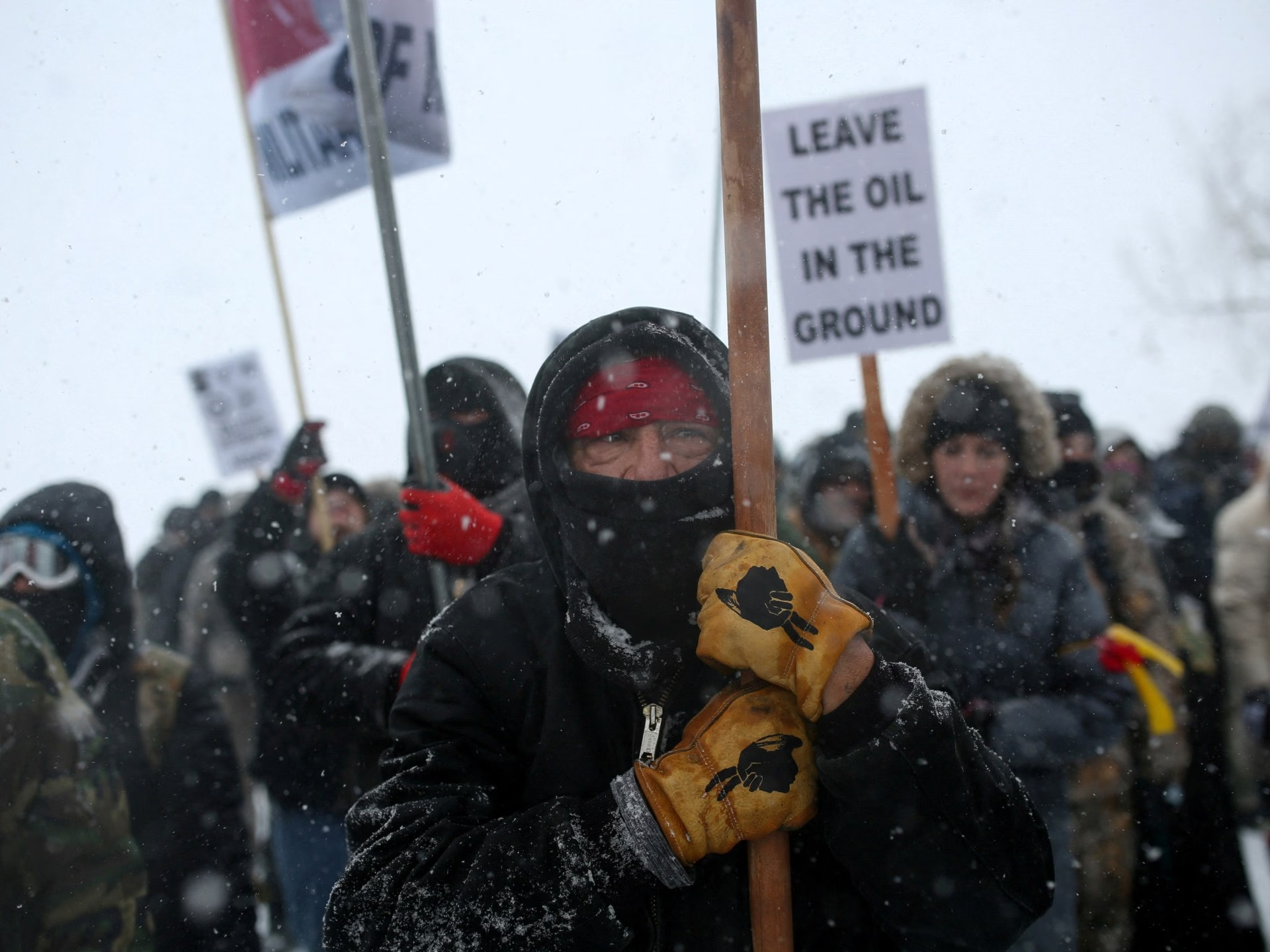In a significant lawsuit against Greenpeace, a jury in the United States ordered the environmental advocacy group to pay hundreds of millions of dollars in damages to Energy Transfer, the operator of an oil pipeline situated in North Dakota. This case, brought forth almost a decade ago, has sparked major concerns about freedom of speech.
Greenpeace quickly announced their intention to appeal the verdict, which initially emerged after they participated with the Standing Rock Sioux Tribe in one of the largest anti-fossil fuel protests. The jury in North Dakota concluded that Greenpeace is responsible for over $660 million in damages, citing claims of trespass, nuisance, conspiracy, and obstruction of property access.
Energy Transfer, a Texas-based entity valued at $64 billion, expressed satisfaction with the verdict, asserting that it stands for the people of Mandan and all of North Dakota suffering the effects of disrupted daily life and harassment from Greenpeace-funded protesters.
However, a group observing the trial as Trial Monitoring Committee noted concerns. They pointed out that several jury members had ties to the fossil fuel industry, some even admitting they could not be impartial—yet they were seated anyway.
The dispute traces back to protests in North Dakota, where the Standing Rock Sioux Tribe established a camp to halt the Dakota Access Pipeline. Despite support from various activists and even US Army veterans, the protest endured harsh winter conditions and violent clashes with law enforcement.
Energy Transfer accused Greenpeace of exploiting the tribe to further their anti-fossil fuel agenda. Greenpeace maintains they merely played a small, peaceful part in the movement, dominated by Native Americans.
Despite the protests, the pipeline began operation in 2017. Nevertheless, Energy Transfer pursued Greenpeace for financial compensation through a federal lawsuit that was dismissed, before refilling the suit in the state courts of North Dakota, one of the few US states without “Strategic Lawsuits Against Public Participation” (SLAPP) protections.
This case is seen by critics as a classic SLAPP, aiming to stifle dissent and exhaust Greenpeace financially. Especially during President Trump’s presidency, known for his support of the fossil fuel industry, the lawsuit is viewed as part of a broader effort to suppress freedom of expression across various fronts of social and political activism.
Authors, like Naomi Klein, weigh in by drawing connections between these attacks on protest and freedom to movements like climate, Palestine, labor, migrant, trans rights, and reproductive rights. Critics argue that rather than silencing environmental activists, fossil fuel companies should be held financially accountable for the climatic damage they cause.
In the wake of these developments, climate change is exacerbating natural disasters, such as recent fires in California and an unprecedented inland hurricane hitting North Carolina. The Standing Rock Sioux Tribe recently filed another lawsuit, pressing the US Army Corps of Engineers to shut down the pipeline, claiming it operates without legal approval.
Source: https://www.aljazeera.com/news/2025/3/20/greenpeace-must-pay-660m-to-oil-company-over-pipeline-protests-jury-says?traffic_source=rss







